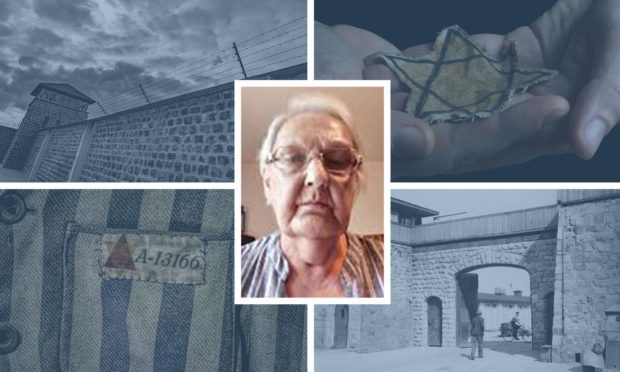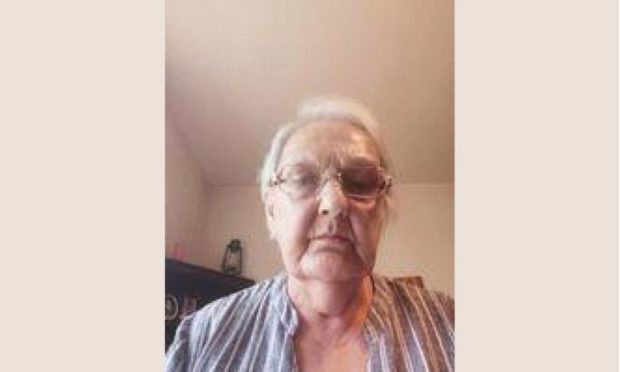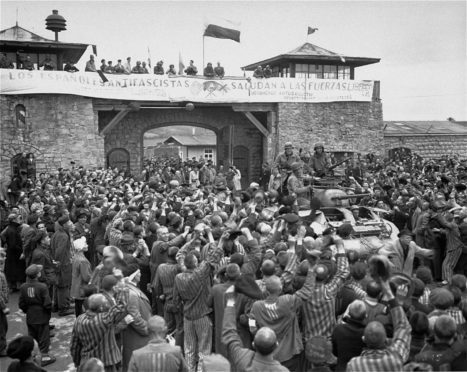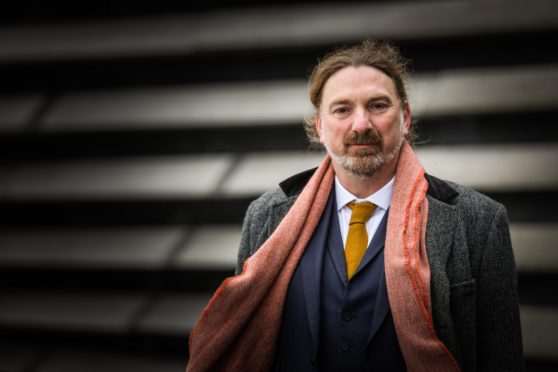“Divine intervention” is how Irena Jendrycha describes her rescue from the hands of the Nazis, who were “12 minutes” from murdering her and her mother.
Mrs Jendrycha, 77, has called Scotland home for as long as she can just about remember.
She has lived in Dundee most her adult life and is one the UK’s last few survivors of the Holocaust.
But now, seven decades on from her family’s rescue as refugees, the Coldside woman has been left “in the dark” about whether her status as a resident here is confirmed.
Dundee West MP Chris Law has had to write to Prime Minister Boris Johnson for answers, calling on the UK Government to take Irena’s case in hand to make sure she is no longer left in fear.
He wants the prime minister to take on Mrs Jendrycha’s case “personally”.
Early years
After being liberated from an Austrian death camp as a baby, Irena spent the first five years of her life living in refugee sites and displaced persons facilities in Italy, England and Scotland with her mother and the man who she would know as her father — who had himself survived Stalin’s salt mine gulags as a young prisoner of war before meeting his future wife and daughter in Italy.
A family who survived the very worst of European brutality and the darkest days of the continent’s history.
Of remembering her early years, Irena said: “You can’t sit back and allow it to consume you. Every day is a challenge and things can feel stormy for a while. But you have to have faith.
“The worst memories, I think I have are in my deep conscious. As a child you might not remember them as such. It took me many years to acknowledge them, then things began to surface.
“When I see what is happening in the world round about us, it feels like history repeating itself and the worst I fear, is still to come.”
Life of service
Acknowledging her own beginnings, Irena spent her working life helping the UK and the world’s neediest through the church, dispensing hot food to the homeless and organising and donating clothes and bedding for refugees escaping conflict across the globe.
She has not travelled outside of the UK since arriving after the war ended and has had no need for a passport.
Her mother was Polish and was transported to a death camp in Austria where she gave birth to Irena. Following liberation by American troops, they were sent “in trucks” to Italy for a number of years, before being shipped to Dover, then Hull, Berwick upon Tweed’s displaced persons camp and finally a farm in Angus.
When she was asked to “prove” she had a right to stay in Britain as the EU Settlement Scheme deadline approached, she said she felt like “an outcast” with no sense of “belonging”.
“This whole experience has left me feeling drained, like a wrung-out towel.
“I was asked question after question about my life and my work.
“At one point someone said I could in fact be deported, this is the sort of stuff I’ve been bombarded with. I’ve lived here for 73 years.
“I am 77 now, it has been such a complicated process and has been totally ridiculous.”
Irena insists she is not looking for sympathy and spent years of her life not mentioning the horrors of her past.
She said a voice came to her from God, as she got older, telling her to not only share her story, but to make sure people would not suffer the same as so many millions had during the Second World War.
“God has given me a voice, there has been so much suffering in this world.
“My mother, she suffered, along with millions of Jews, gypsies, Roma, priests, Poles, Russians.
“I was afraid to speak out, I never had the chance to.
“But I’ll push for this, for other people. Someone else has put me in this position, but I have to remember everyone who has suffered more than me, and will.”
Raised with Prime Minister
The deadline for EU citizens to apply was July 1 and Irena still has not been told whether or not she has a “right” to stay in the UK.
SNP representative Chris Law fears there could be hundreds, if not thousands of similar cases to Irena’s.
After raising the issue in parliament earlier this month during a debate on extending the scheme, Mr Law has written to the prime minister over concerned the case could uncover another “Windrush scandal“.
Writing to Mr Johnson, he said: “As I write this letter, Irena is still unsure if her application will be successful and if it isn’t, what would her status be going forward?
“Surely you would never suggest she should be deported from her home country, to a country that is alien to her?
“Given Irena’s history, her commitment to this country and her vulnerable condition, I would like to request that this application is treated with the compassion it deserves and for her to be granted Settled Status without delay.
“And I would like to add my full support to this application.
“I would also like Irena’s case as to be raised through the Windrush scheme, so that she can be granted British citizenship to allow her to live the rest of her life without having to worry about any other seriously damaging processes of this nature in the future.”
He added: “Despite living here for over seven decades, Irena had to apply to guarantee her residence, but shockingly has never received confirmation that she is safe and secure to continue living in the country she has lived in for the vast majority of her life.
“Sadly, there may now be many thousands of people like her who are now living with the stress of not knowing whether their status in our country is secure.
“This UK Government has a horrible track record in its treatment of those who have chosen to make our country their home – just look at the apologies that they were forced to issue to those, for instance, who had moved here as children through the Windrush Scheme.
“We surely owe it to people like Irena who have made our city and our country their home to ensure that they are treated respectfully and without stress, and I hope that the Prime Minister will see sense and help guarantee Irena’s status in our country as quickly and stress-free as possible.”
The UK Government was approached for comment.



